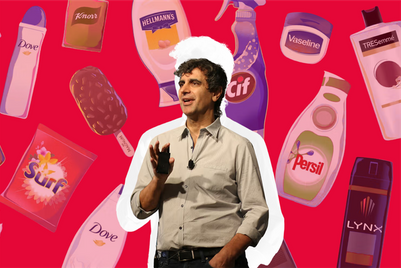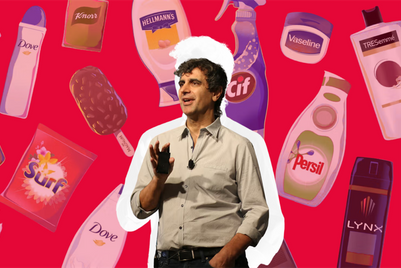
While countless hours are spent agonizing over how to market a brand to its target audience, brands traditionally have not given much thought to the need to promote the company and its culture as a great place to work.
Petter Nylander, CEO of Universum Global, told Campaign Asia-Pacific that while companies will benefit directly through good employer branding (due to a faster and more efficient recruitment process), how the employer brand speaks defines the company in the eyes of consumers.
“It is about brand architecture and the corporate brand to attract both fresh graduates and experienced people,” he said. “Technology and the attitude of the employees have changed. Students will go online to check out a company, and they look at how brands present themselves.”
Nylander added that many MNCs are using employer branding in talent acquisition, but they need to have a consistent message that makes employees feel proud to work for their company. Companies like Google spend a lot of time and resources on showing off their company culture and what it is like to work for the company.
Nylander noted that employer branding deploys similar techniques to brand marketing. Among these are: creating and determining awareness levels and the right channels; building brand preference; as well as defining employer value proposition (EVP) by looking at the company’s strengths and getting opinions from employees.
“It is the same technique used for consumer marketing: You look at numbers and facts to see if they are creating impact,” he added. “For employees, where to work also involves emotion and stakeholders like parents, friends and family.”
Nylander noted that the problem for brands is whether they should position employer branding under HR, corporate communications or marketing communications—but it is often put under HR.
Asia catching up
“Currently, the companies that take up employer branding are mostly MNCs, but domestic companies in Asia are catching up. We need to educate brands about the importance of employer branding to do marketing about the company and to attract talent,” he said.
Nylander said Universum has 14 offices globally with 200 employees and is looking to establish a partnership in Australia this year as part of its expansion plan in Asia. It is therefore launching a survey targeting university students to find out their career preferences, as well as the employers they find most attractive to work for.
Zhang Yi, HR director of global talent acquisition and employer branding/talent development at Schneider Electric, said the company started doing employer branding in 2008, as it was changing from a B2B company to a B2C company.
“The brand is famous [in its] industry, but it is not a mass-known industry,” he told Campaign Asia-Pacific. “It is challenging, as we are changing from B2B to B2C and the talent war is huge. Hence we want to create awareness about the company."
Recruiting through social media
The company uses social media such as Facebook and Twitter to connect with about 1.5 million industry professionals, which is a major benefit when it comes to recruiting.
“That is the advantage of social media,” Zhang added. “We also have an annual programme called 'Go great in the city', that places participants with mentors for six months before they present their ideas to the CEO.”
The company used to focus on traditional recruitment methods such as school visits, but is now concentrating more on digital marketing. “It involves lower cost, but higher impact. We get more people applying for jobs and it helps us to change our business model from B2B to B2C. We even hired a vice-president through social media,” Zhang said.
FMCG company Unilever is another example of an MNC that has been using employer branding to promote itself as a company, rather than merely promoting the products.
Melissa Gee Kee, Unilever's leadership and organisation development director for Southeast Asia and Australasia, said the key contribution of employer branding is how it has helped candidates to understand more about the company.
Raising awareness
“We do a lot of research to understand our perception in the market. [Candidates] didn’t know we have other parts of business, besides sales and marketing. It is easier now identifying the right candidates, as well as tapping into top talent. The ROI is very clear,” she said.
She added that Unilever uses internal teams for on-campus campaigns at colleges and universities that help young talent to understand the company. It also offers graduate programmes and internships.
Having earlier worked in similar positions related to employer branding in Japan and London, Gee Kee noted that “Asia is not as sophisticated for employer branding”, but it is improving.
She noted that as employer branding involves the same marketing tactics as brand marketing, so the audiences, namely fresh graduates and professionals, understand the products and the company behind the products.
“Like when we need more finance students, we invite employees to speak to prospective candidates. We try to communicate our culture and the people inside the company,” she added.


.jpg&h=334&w=500&q=100&v=20250320&c=1)

.jpg&h=334&w=500&q=100&v=20250320&c=1)


.jpeg&h=334&w=500&q=100&v=20250320&c=1)
+(1).jpg&h=334&w=500&q=100&v=20250320&c=1)

.jpg&h=334&w=500&q=100&v=20250320&c=1)
.jpg&h=334&w=500&q=100&v=20250320&c=1)



.jpg&h=268&w=401&q=100&v=20250320&c=1)



